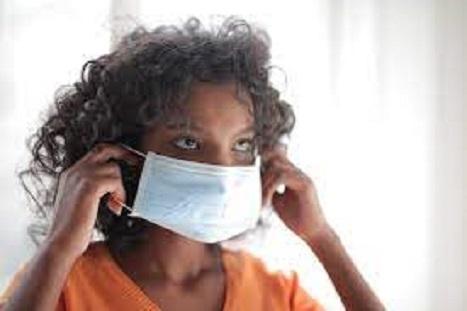Africa-Press – Lesotho. The impacts of crises are never gender-neutral, and Covid is no exception. Crises hit women harder because they generally tend to earn less, have fewer savings, are disproportionately less represented in the formal economy and are more likely to be burdened with more informal and domestic work and are often more likely to lose their employment because of this.
Women also make up the majority of single households. Because women are already more socioeconomically marginalized by the gender pay-gap, they tend to suffer more job losses in this crisis. Stress over livelihood, loss of income and quarantine, correlates with this this burden and they are at a higher risk of GBV.
This article is also supportive of the topics discussed on the Webinar session held by the BAM Group Foundation on Women’s Day facilitated by Mme ‘Mamashiya Ntsepeng Tsita Tekiso and other business women on similar and related issues which I support fully in deed and spirit.
We are in the thick of a ”SHE-CESSION”. The unique aspects of the current recession are in the way it is impacting women. Though statistically, men are more likely to die due to Covid, this pandemics toll on employment is heavier on women unlike other emergencies.
This pandemic has had more job losses among women than men. The current She-cessionis heavily affecting sectors like hospitality, domestic work, cleaning services, tourism, the informal economy and agriculture.
The Covid induced poverty surge will widen the already existing gender poverty-gap as it is not only about layoffs but also about the types of employment held by women and children.
When the lockdown happened and the world of work changed, the shift was felt more by women than by men. When the industries shut down, looking at firms in Lesotho, over 95% of the affected work force were women.
These firms have down-stream industries that rely on them; the first is the informal economy within such industries such as agriculture and food. The plated food kiosks are the first to cease to exist as once the firms close, the area is left deserted and immediately two classes of poverty are created.
Household needs still need to be met, but with a population that gets daily, weekly and fortnightly income, most times with very little or no savings, hunger is almost instant.
In the other sectors such as cleaning services, tourism and domestic employment, again, the majority are women. When offices, hotels, guesthouses and lodges are closed, the first affected are the cleaning services, housekeeping and catering. Already on minimal pay with little savings, these women again are on the front-line of poverty when the economy shuts down.
Add on this the demands of being a mother, wife, homemaker, educator, home-carer, community builder and an individual person who has her own wants, needs and dreams, the stress can be too much to bear, and unfortunately, not ever acknowledged enough. The professional working woman also faces her challenges.
Notwithstanding the working from home scenario and its own challenges (a topic I covered extensively in previous articles) she also has to multi-task at being a mother, wife, homemaker, educator, home carer, community builder and an individual who has her own wants, needs and dreams.
(As you can see, classism is never a factor.
All women have similar dreams) She might be in the fortunate position to still keep her employment and has some savings, so the economic impact might not be as immediate or severe as in other sectors, but the social, medical and environmental and family impact isn’t too different.
We have to admit that in the corporate world, the prevailing culture has forced women to “show-up” more than men to have their voice heard and competence appreciated.
There is a clear distinction between women and men leadership styles. It has been proven that countries led by women handled the pandemic much better that men-led countries.
This will be a discussion in a related article later down the line on this series. This is an ongoing discussion, that is why your feedback on these articles is valued. You create the narrative.
Professional, corporate or business owning working mothers, having full working hours, with the extra pressure of fully being at work, but at home, depending on the children’s age, have a higher responsibility on women.
Functional marriages should have a fair 50\50 split of house chores and homeschooling between partners. But we know and can acknowledge, we don’t always have functional families, marriages and homes.
This extra dysfunction adds more pressure on women working from home with little or no spousal support. These issues are more pronounced in single-parent headed households.
As men and fathers, I think it is important for us to recognize these challenges and complexities in our relationships in order to appreciate the impact that this pandemic has had on all our lives.
In us being mindful of these different dimensions of lockdowns and realizing that it’s just not only a medical issue but also a socioeconomic matter, we may ease, or at the very least appreciate the disproportionate impact that this pandemic has on women and children.
We need to be more empathetic to others’ situations and move to make the necessary decisions in our places of employment or influence. One of the most painful scenes and experiences I had in the Maseru central business district was seeing the empty stalls of the vegetable sellers.
When one considers the economic situation of these traders and the families they have to feed, it seems not a well thought through plan to completely shut down this industry when social distancing measures can obviously be applied.
The lack of empathy I notice here of decision makers in being comfortable in the knowledge that they may still hold their job and will get their veggies at Pick&Pay or Checkers.
MGC founder Sam Matekane showed real leadership and humanity by recently donating cabbage packages to 1000 street vendors who were negatively impacted by the latest closures.
Let us be more mindful of our surroundings, neighbors, friends, colleagues and family during this time. Let us be more understanding of this “She-Cession” and be more proactive, react better and make decisions that are to the benefit of all.
For More News And Analysis About Lesotho Follow Africa-Press






